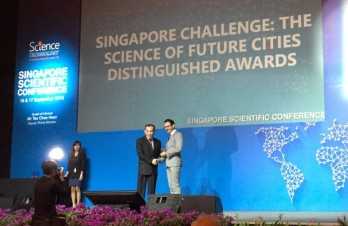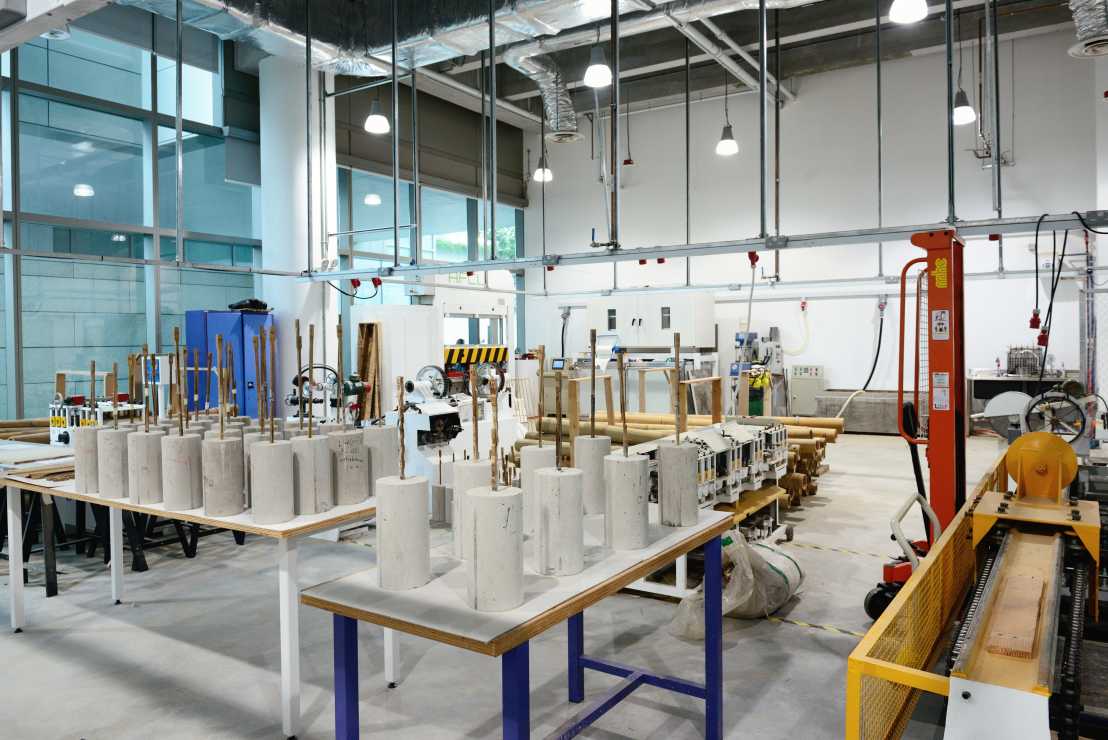E4D Fellow: Alireza Javadian
Composite bamboo material and its application as reinforcement in structural concrete

Project duration: 2013 - 2016
Supervisor at ETH Zurich
Assistant Professor Dirk Hebel (Group of Architecture and Construction)
Collaborators
Prof. Ian Smith, EPFL
Partner institutions
external page Applied Computing and Mechanics Laboratory, EPFL
Future Cities Laboratory (Singapore ETH Centre)
external page Ethiopian Institute of Architecture, Building Construction and City Development
external page Rehau Germany
external page Holcim Singapore/Switzerland
external page EMPA Switzerland
external page Republic Polytechnic Singapore
Top Science Award for E4D Fellow Alireza Javadian

Alireza Javadian, E4D fellow and a doctoral student in the Hebel Research Group at the Future Cities Laboratory in Singapore, wins top distinguished award in the 2015 Singapore Challenge: The Science of Future Cities for his research on Advanced Fiber Composite Materials. The Singapore Scientific Challenge 2015 is jointly organised by A*STAR, NUS, NTU, SMU and SUTD as part of A*STAR’s Science@50 initiative to mark a half-century of excellent science in Singapore on her 50th birthday. It seeks to promote engagements and collaborations amongst the wider scientific community and to raise the level of scientific thought leadership in Singapore.
Project description

Newly developed bamboo composite materials as reinforcement systems in structural concrete have the potential to revolutionize the concrete building sector, which did not change significantly over the past 100 years. Steel reinforced concrete is the most common construction material worldwide. So far, no other material has been found to compete with steel as the dominant reinforcement system on a broad scale. The proposed PhD research will provide the scientific knowledge on how a newly developed bamboo fibre composite material will be produced, tested and used in structural concrete applications. The goal of the proposed research is to find an innovative alternative reinforcement material and to replace steel where possible and adequate.
The advantages of this alternative reinforcement material over steel are immense:
Higher tensile capacity, lower production costs, less weight, complete corrosion resistance, complete magnetism resistance, natural renewability, easy accessibility, lower energy consumption during production, as well as its unique capacity to bind large amounts of CO2 during its fast growth are to be mentioned here.
To assess the properties of the new product, physical and mechanical tests will be performed at Advanced Fibre Composite Laboratory Singapore.
After completing the tests on the bamboo composite material itself, series of physical and mechanical tests will be conducted on concrete samples reinforced with the new material to evaluate the properties of structural concrete in combination with the bamboo composite reinforcement. Research collaborations with industry partners like REHAU in Germany as well as HOLCIM in Singapore/Switzerland have been established to ensure that the proposed research will satisfy necessities in the industry and guarantee, that the new technology is easy to be scaled up worldwide. In addition, partner institutions in Singapore as well as Ethiopia have been engaged over the course of the research through which the PhD candidate can access materials and laboratories outside Singapore.